Homeowners’ Associations (HOAs) are the backbone of many communities, ensuring that neighborhoods run smoothly, maintain their value, and offer residents an enjoyable living experience. The success of an HOA often hinges on the effectiveness of its board members.
In this blog post, we will explore the critical role of HOA board members and provide a comprehensive overview of best practices for managing these thriving communities. Whether you’re a seasoned board member or considering taking on this important responsibility, these best practices will help you master the art of HOA management.
Board Members Role
Before diving into best practices, let’s clarify the roles and responsibilities of HOA board members. These dedicated individuals are typically elected or appointed by the community’s residents and serve as the decision-making body responsible for governing the association. Their responsibilities include:
- Policy and Rule Creation: Creating and enforcing community rules and policies that ensure harmony and compliance.
- Financial Oversight: Managing the association’s finances, including budgeting, accounting, and reserve funds.
- Maintenance and Improvement: Overseeing the maintenance of common areas, amenities, and property enhancements.
- Conflict Resolution: Addressing disputes, mediating conflicts, and fostering a peaceful living environment.
- Strategic Planning: Developing long-term plans for the community’s growth and improvement.

Communication
One of the pillars of successful HOA management is effective communication. Here’s how board members can excel in this area:
- Transparency: Maintain transparency in all communications with residents, keeping them informed about community matters.
- Regular Updates: Provide regular updates via newsletters, community meetings, and digital platforms to keep everyone in the loop.
- Accessible Information: Ensure that community documents and information are easily accessible to all residents.
- Listening Skills: Actively listen to residents’ concerns and feedback, fostering an open and inclusive environment.
Financial Management
Managing finances is a critical aspect of HOA management. Best practices include:
- Budgeting: Develop a well-thought-out budget that accounts for operating expenses, reserve funds, and any planned projects.
- Financial Reporting: Maintain accurate financial records and provide regular financial statements to residents.
- Reserve Fund Planning: Plan for the long term by establishing and maintaining a robust reserve fund for major repairs and replacements.
- Financial Transparency: Be transparent about the use of HOA funds, ensuring residents understand where their money is going.
Enforcement and Compliance
Enforcing community rules is essential for maintaining order and harmony. Best practices in this area involve:
- Consistency: Enforce rules consistently and fairly, treating all residents equally.
- Communication: Communicate rules and regulations to all residents and ensure they understand the consequences of non-compliance.
- Dispute Resolution: Establish a fair and efficient process for resolving rule violations and disputes.
- Educational Outreach: Offer educational resources to help residents understand and adhere to community rules.
Maintenance and Management
The physical upkeep of common areas and property is crucial. Best practices include:
- Regular Inspections: Conduct regular inspections to identify maintenance needs and address them promptly.
- Vendor Management: Carefully select and manage vendors for maintenance and improvement projects.
- Amenity Upkeep: Maintain community amenities to ensure they remain safe and functional for residents.
- Professional Management: Consider partnering with professional property management companies to handle day-to-day operations efficiently.
Conflicts
Conflicts are bound to arise in any community. Effective conflict management involves:
- Mediation: Utilize mediation techniques to resolve disputes and find mutually agreeable solutions.
- Neutrality: Approach conflicts impartially, ensuring fairness and objectivity.
- Conflict Prevention: Develop strategies and policies that minimize conflicts before they escalate.
Compliance
HOA board members must stay compliant with legal and regulatory requirements. Best practices include:
- Legal Counsel: Seek legal counsel when necessary to navigate complex legal matters.
- Document Compliance: Ensure all community documents and actions comply with local, state, and federal laws.
- Transparency: Keep residents informed about legal matters that affect the community.

Future Planning
HOA communities should have a clear vision for the future. Best practices include:
- Strategic Planning: Develop long-term plans that consider community growth and improvement.
- Reserve Studies: Conduct regular reserve studies to assess the need for future repairs and replacements.
- Resident Input: Involve residents in the planning process to ensure their needs and desires are considered.
Training and Education
Staying informed and educated is vital for HOA board members. Best practices include:
- Continuous Learning: Attend seminars, workshops, and conferences to stay updated on industry best practices.
- Community Resources: Utilize available resources, such as industry associations and publications, for ongoing education.
- Share Knowledge: Share newfound knowledge and best practices with fellow board members and residents.
Final Thoughts
In conclusion, HOA management is a complex but rewarding responsibility. Board members play a pivotal role in shaping the community’s present and future. By embracing these best practices, you can master the art of HOA management and contribute to the well-being and success of your community. Whether you’re a new board member or a seasoned veteran, these guidelines will help you navigate the challenges and opportunities of this vital role. Here’s to fostering thriving and harmonious HOA communities for all!
Ready to transform your HOA community with expert management? AMC HOA Management is here to help you implement these best practices and elevate your community living experience. Discover the difference professional management can make. Contact us today for a personalized consultation and let’s embark on a journey to unlock the full potential of your HOA community!




